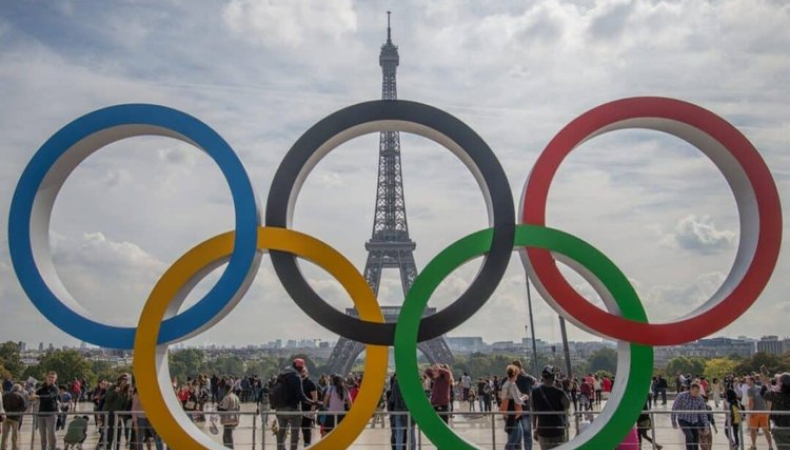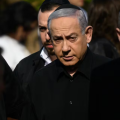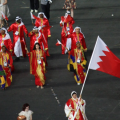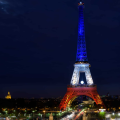Global Campaign Launched to Ban Israel from 2024 Paris Olympics

Claiming a genocidal assault against Palestinians in the Gaza Strip, a major worldwide movement has been started to forbid Israel from attending the 2024 Paris Olympic Games. Using the hashtag #Ban Israel From Paris Olympics to urge the Olympic organizers to stop Israeli athletes from competing in the forthcoming Games set to start on July 26, pro-palestine activists have turned to social media.
Campaigners’ Argumentative Stance
The activists contend that the Olympic values—unity, peace, and human rights—are glaringly incompatible with what they see as Israel’s repressive and genocidal acts against Palestinians. “celebrating the human values of the Olympics contradicts Israel’s oppressive and genocidal practices against the Palestinians,” the campaigners added. They also probe, “How do we celebrate human values while human rights are being brutally violated?” The campaigners contend that banning Israel from the Olympics is a demand rooted in justice and humanity, a call to action for everyone who shares these values.
Protests and Global Reaction
Outside the International Olympic Committee (IOC), demonstrations have erupted in numerous European nations, notably France and Switzerland. Emphasizing what they saw as double standards, protestors have requested that the Israeli delegation be excluded from the Paris Olympics. “Preventing Russia and Belarus from the Olympics previously, and allowing Israel to participate this year is a clear use of double standards,” the activists remarked. They argue that Israel should follow the IOC’s earlier decision to exclude Russia and Belarus because of geopolitical issues, pointing out that same policies should apply to Israel.
Public Reactions in France
In France, the movement is rather well-known. The nation would offer Israeli athletes 24-hour security, according to French Interior Minister Gerald Darmanin, during the Olympic Games. This guarantee responded to the proclamation made by leftist MP Thomas Portes stating the Israeli delegation is not welcome in Paris. Darmanin’s comment emphasizes the increased security issues and the divisive character of the matter inside France.
Legislative and Political Behaves
Vocal about the problem, French MP Aymeric Caron has urged the IOC to stop Israel from competing in the Paris Olympics in 2024 Caron’s plea makes sense in line with the IOC’s ban of Russia for its activities in Ukraine. This call to action is a component of a larger initiative among several political leaders to solve perceived discrepancies in the implementation of international rules and sanctions.
Palestinian Appeals and institutional choices
Active in this movement as well, the Palestinian Football Association (PFA) has asked the IOC and FIFA to sanction the Israeli Football Federation. Made in May, this action reflects the larger demand for Israel’s removal from world sports competitions resulting from its activities in Gaza. Indicating the intricacy and sensitivity of the PFA’s demand, FIFA, the world governing body for football, has postponed official talks on it until August 31.
More General Consequences for the Olympic Movement
The movement to forbid Israel from the Paris Olympics of 2024 draws attention to a crucial junction of world sports, politics, and human rights. The campaigners contend that letting Israel take part will compromise the Olympic ideals of respect of human rights, peace, and unity. This campaign serves as a test of the IOC’s dedication to these ideals, in their perspective.
Keep on Reading
Future Prospect and Historical Context
The demand to forbid Israel is not a one-time occurrence but rather a part of a larger historical background of political activities inside the Olympic movement. From the boycotts during the Cold War to the exclusion of South Africa during the apartheid era, the Olympic Games have sometimes been a venue for geopolitical conflicts. The result of the present campaign will probably affect next debates on the part politics plays in international sports.
The pressure on the IOC and other athletic organizations to handle these divisive problems is getting more as the 2024 Paris Olympics get ready. The movement to forbid Israel from the Games emphasizes the difficulty of juggling the Olympic principles with the political reality of the contemporary society. The way the Olympic movement negotiates the junction of sports, politics, and human rights in the future will be established by the settlement of this problem not only affecting the forthcoming Games but also setting a precedent. The efforts of the activists show a larger desire for responsibility and consistency in the application of international norms, a task that the IOC and other institutions will still have to deal with in the next years.








